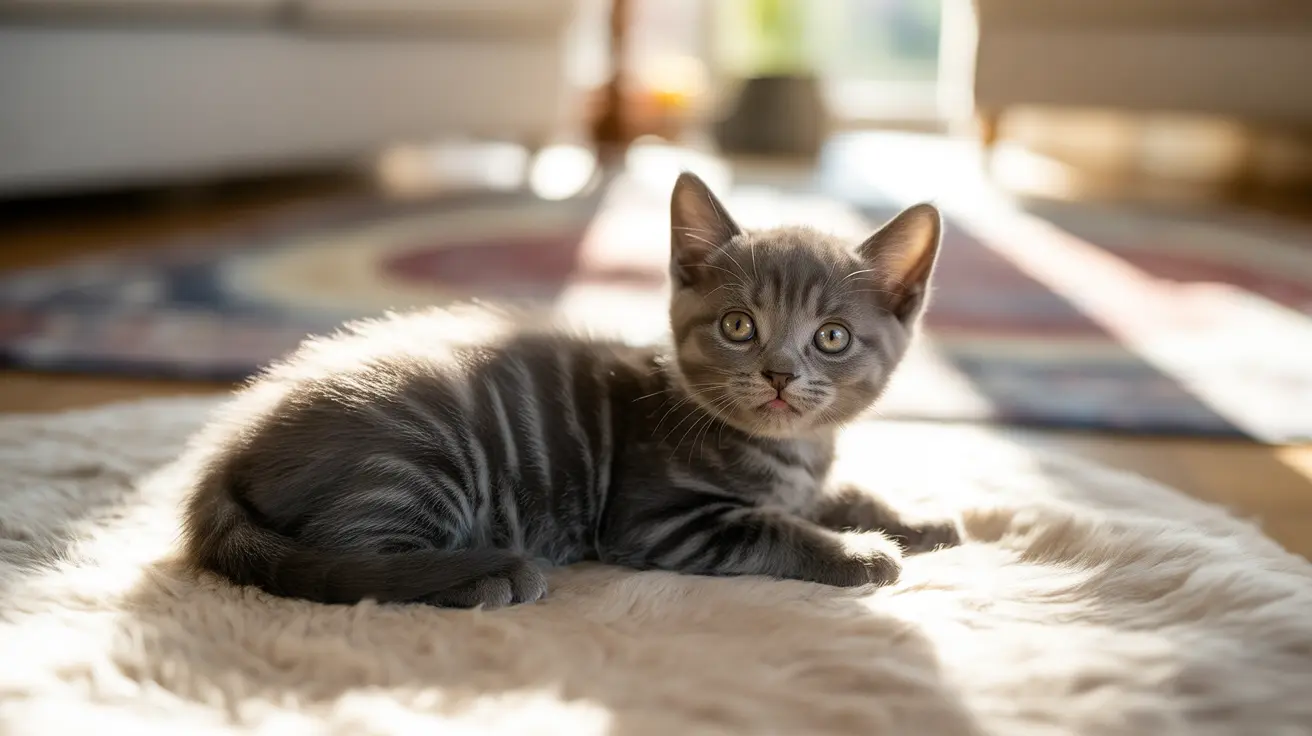When it comes to adorable feline companions, black kittens hold a special place in many pet lovers' hearts. These miniature panthers aren't just cute; they're fascinating creatures with unique genetic traits and special characteristics that make them truly remarkable pets.
In this comprehensive guide, we'll explore everything you need to know about black kittens, from their mysterious genetics to practical care tips that will help your ebony friend thrive. Whether you're considering adopting a black kitten or already share your home with one, you'll discover fascinating insights about these captivating creatures.
The Genetics Behind Black Kittens
Black kittens get their stunning coat color from a fascinating genetic process. The dominant melanin-producing genes override other color patterns, making black one of the most common coat colors in cats. This genetic dominance explains why black kittens can appear in various cat breeds, rather than being limited to specific ones.
Interestingly, many black kittens possess hidden patterns beneath their dark fur. These subtle markings, often invisible at first glance, can sometimes be glimpsed in bright sunlight, revealing tabby patterns or other subtle variations in their coat.
Physical Characteristics and Development
Black kittens typically develop their full coat color by about 6-8 weeks of age. During their early development, you might notice their eyes starting as a bright blue before changing to their permanent color, usually golden or yellow, though some may develop green or copper-colored eyes.
Their coat isn't always a perfect solid black - some black kittens may have small white patches on their chest or tiny white hairs scattered throughout their fur. These minor variations don't make them any less "black" but add to their unique charm.
Health Advantages of Black Cats
Research has shown that the genes responsible for black fur may offer some surprising health benefits. The genetic mutations that create black coats have been linked to stronger immune systems, potentially helping these cats resist certain diseases more effectively than their differently-colored counterparts.
This genetic advantage might explain why black cats have been so successful in evolutionary terms, becoming one of the most common coat colors in the feline world.
Caring for Your Black Kitten
Black kittens require specific care to maintain their sleek, beautiful appearance. Regular grooming is essential not only for keeping their coat healthy but also for preventing the subtle color changes that can occur from sun exposure.
A balanced diet rich in essential nutrients will help maintain the natural shine and health of your kitten's coat. Additionally, keeping your black kitten primarily indoors can prevent sun-bleaching of their fur, which can cause it to develop a rusty tinge.
Frequently Asked Questions
Do black kittens have hidden patterns in their fur, and how can they be seen?
Yes, many black kittens have hidden tabby patterns in their fur that become visible under bright sunlight or certain lighting conditions. These patterns form during embryonic development but are usually masked by the abundance of black pigment in their coat.
How do I care for a black kitten's coat to maintain its sleek appearance?
Regular brushing (2-3 times per week), a high-quality diet rich in omega fatty acids, and limiting sun exposure will help maintain your black kitten's sleek coat. Using a soft brush or grooming mitt can help distribute natural oils throughout their fur.
Can black cats change color permanently, or is the color change temporary?
Color changes in black kittens are typically temporary and usually caused by sun exposure (sun bleaching). When they shed their coat, new fur grows in with the original black color. This process is natural and doesn't indicate any health issues.
What are the health benefits associated with black cats, and how do these impact their care?
Black cats possess genetic mutations that may provide better disease resistance, particularly against viral infections. While this doesn't mean they need less medical care, it suggests they might have naturally stronger immune systems.
Why do black cats sometimes face lower adoption rates despite being the most common coat color?
Lower adoption rates for black cats often stem from outdated superstitions and the practical challenge of photographing black cats effectively in shelter settings. However, their personality, health advantages, and striking appearance make them excellent companions.
Conclusion
Black kittens are remarkable creatures that combine beauty, genetic advantages, and loving personalities. Whether you're drawn to their sleek appearance or intrigued by their unique genetic traits, these little panthers make wonderful companions. With proper care and attention, your black kitten will grow into a healthy, happy cat that brings joy and wonder to your home for years to come.






